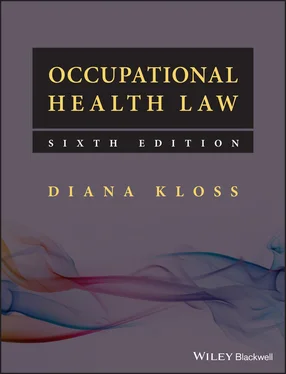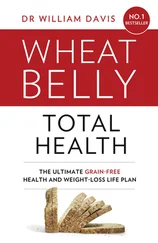Nurses are often troubled that they are not covered if they undertake ‘extended role’ tasks without proper authority. Because essentially the proper role of a nurse rests on custom and practice, it is impossible to lay down a definitive list of nursing tasks. The RCN in its guidance notes for the occupational health nurse advised that each OH department should draw up an agreement about the tasks which the nurse is expected to perform. No nurse should undertake any procedure for which she is not trained and competent. The RCN was reluctant to draw up lists of duties which could be regarded as a restriction on the development of the OH nurse’s role in a true professional sense. On the other hand, OH nurses need to recognise those areas of expertise which rightly belong to other professions, such as medicine, radiography or physiotherapy. The emphasis is on demarcation agreements, especially with doctors who carry the ultimate clinical responsibility, and on training to enable the nurse to extend her role competently.
2.13 The conduct of research
Research on humans is of two kinds: clinical research on ill patients (therapeutic) and research on healthy volunteers (non‐therapeutic). (Research on animals is regulated by completely different laws.) In law both need the informed consent of the subjects. In the case of a healthy volunteer who will reap no benefit from the research, it is likely that a court would expect maximum disclosure of risk.
Ethical rules are laid down in the Declaration of Helsinki 2000. The Helsinki Declaration demands that every subject:
must be adequately informed of the aims, methods, sources of funding, any possible conflicts of interest, institutional affiliations of the researcher, the anticipated benefits and the potential risks of the study and the discomfort it may entail … the doctor should obtain the subject’s freely given informed consent, preferably in writing.
The 2000 amendments to the Declaration insist that therapeutic and non‐therapeutic research should be subject to the same controls. Department of Health guidelines have had to be substantially amended to allow for the changes brought about by the Clinical Trials Regulations 2004. The Research Governance Framework for Health and Social Care (Department of Health, 2001) indicated a need for review of NHS ethics committees and this was done under the umbrella of the Central Office for Research Ethics Committees (COREC). In 2007 the National Research Ethics Service was created. This body became the responsibility of the Health Research Authority (HRA) which was established in England in 2011 to coordinate the regulation of health and social care research. Similar bodies were created in Scotland, Wales and Northern Ireland. The HRA now comes under the Care Act 2014 as an executive non‐departmental public body. Governance Arrangements for Research Ethics Committees (2018) (GAfREC) describes the principles, requirements and standards for research ethics committees including their remit, composition, functions, management and accountability. Any research done on NHS premises, or using NHS records or patients, must first be submitted to an NHS ethics committee for approval. Application to all NHS research ethics committees is via the Integrated Research Application System (IRAS). Outside the NHS, ethics committees have been set up by, for example, universities, private hospitals and companies engaged in the testing of pharmaceutical products. NHS employees who fail to obtain ethics committee approval for a research project would be subject to disciplinary action. The professional bodies would be likely to regard a failure to obtain ethical approval as professional misconduct. Prior ethical review, however, is not needed for audit designed to examine the value and effectiveness of a system of care.
On 1 May 2004 the Medicines for Human Use (Clinical Trials) Regulations came into force in the UK. These implemented the European Clinical Trials Directive and were the first comprehensive legislative provisions dealing with research on human beings, rather than animals. The Regulations deal with all kinds of ethics committees, both in the NHS and universities, and also independent research contractors engaged in pharmaceutical research on healthy volunteers, but they only apply to trials of medicinal products. The European Union agreed a Regulation on clinical trials on medicinal products for human use in 2014, but this is not likely to come into force until 2020. In 2017 all the UK Departments of Health issued a Policy Framework for Health and Social Care Research which states principles of good practice.
Guidance on ethical principles relating to research on healthy volunteers
Royal College of Physicians (1986)
All research involving healthy volunteers should be approved by an ethics committee.
All studies should be scientifically and ethically justified.
Confidentiality should be maintained.
No study on healthy volunteers should involve more than minimal risk and there should be full disclosure of risks.
There should be no financial inducement or any coercion that might persuade a volunteer to take part in a study against his better judgement. Payment should be related to expenses, inconvenience and discomfort, not risk.
The volunteer should be asked to give permission to the researcher for his general practitioner and, if appropriate, ‘a company or other medical officer’ to be contacted for details of past history. Where appropriate, he should be medically examined and be asked about relevant medical history. He should sign a consent form.
Any significant untoward event occurring during or after a study affecting a volunteer should be communicated to the general practitioner and appropriate medical action taken to safeguard the volunteer’s health.
The sponsor, whether this be a commercial organisation, university, NHS or other institution, should agree to pay compensation for any injury caused by participation in a research study without regard to proof of negligence.
The most recent publication from the Royal College of Physicians: Guidelines on the Practice of Ethics Committees in Medical Research with Human Participants , 4 thedition (2007) does not make the same distinctions between research on patients and research on healthy volunteers, but the advice set out above remains valid.
Research on healthy volunteers often takes the form of a drug study. The Association of the British Pharmaceutical Industry (ABPI) in 1988 published its Guidelines for Medical Experiments in Non‐Patient Human Volunteers , which was revised in 2007. The guidance was again revised and published in 2012 as Guidance for Phase I Clinical Trials . Its recommendations are similar to those in the Royal College of Physicians’ report. Where research is proposed on a ‘captive audience’, e.g. medical students or employees, no one should be made to feel under an obligation to volunteer, nor should they be disadvantaged in any way by not volunteering. Volunteers may be rewarded in cash or in kind, but the amount should be reasonable and related to time, inconvenience and discomfort, not risk. The ABPI operates an ex gratia scheme whereby any healthy volunteer in a drug trial mounted by an ABPI member will receive compensation for any injury arising from the trial. The Medical Research Council and the Wellcome Trust have also published guidance on clinical trials.
In an occupational health setting it will be necessary also to obtain the agreement and support of the employer, and probably the trade unions. The OH physician must be very careful to ensure that any volunteers have freely consented to take part. He should make clear at the start his role as a research investigator.
Читать дальше












